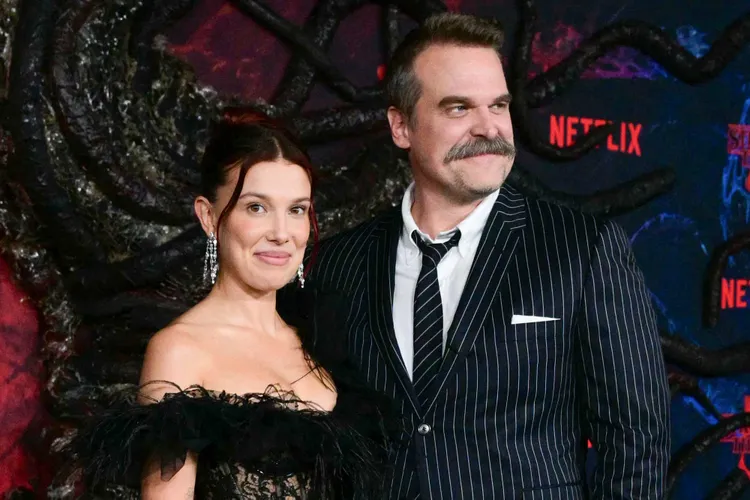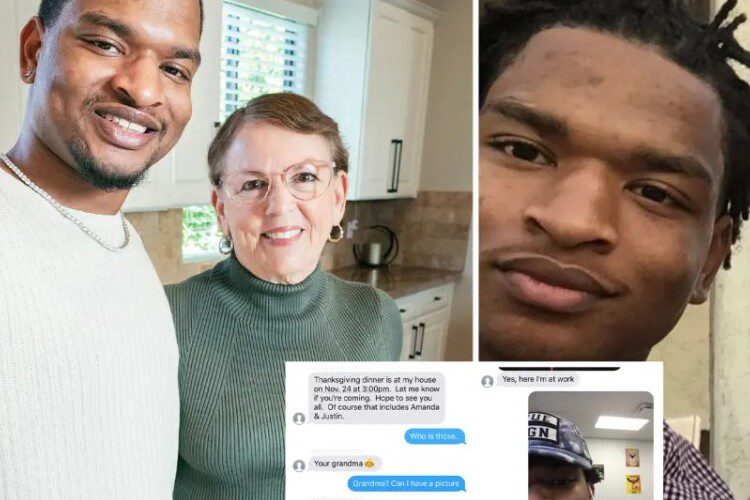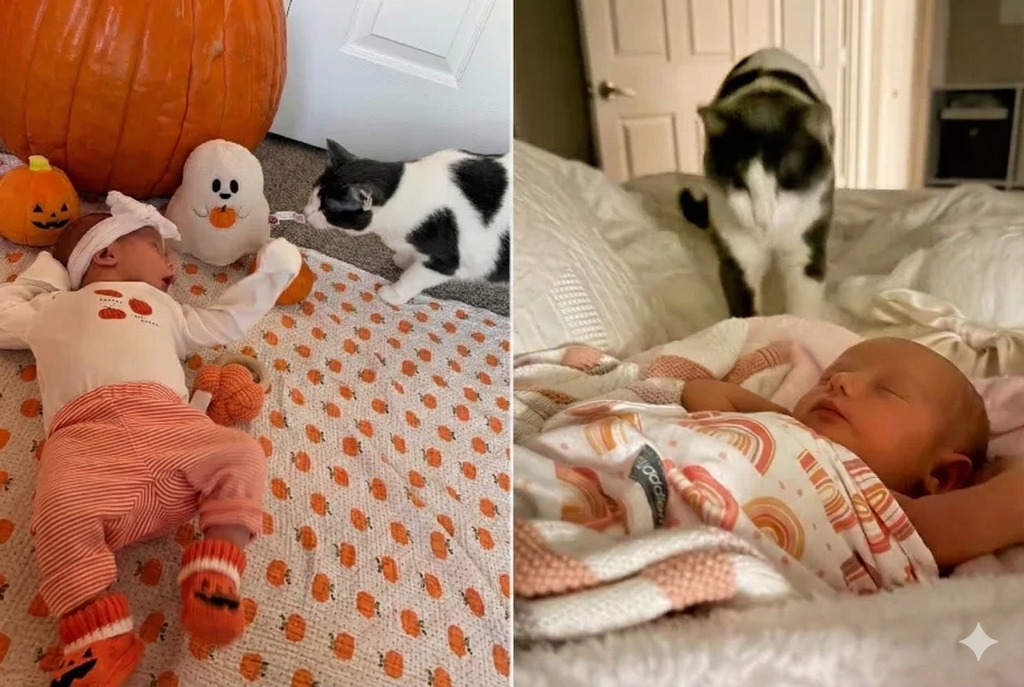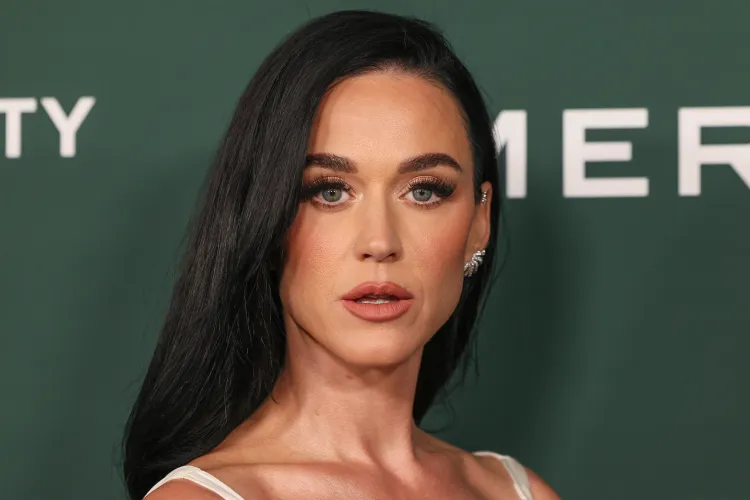Millie Bobby Brown Finally Reveals Where She Stands with David Harbour After On-Set Bullying Report — Her Most Direct Update Yet
For years, the bond between Millie Bobby Brown and David Harbour has been one of the emotional anchors of Stranger Things. Their on-screen relationship — the gruff yet fiercely protective Hopper and the powerful, complex Eleven — became a symbol of chosen family for millions of fans. Off screen, their dynamic often mirrored that warmth, with Harbour praising Brown as a prodigy and Brown describing him as a mentor. But when reports surfaced alleging that Brown had filed a harassment complaint against Harbour during production of the show’s final season, speculation surged, threatening to overshadow their longtime friendship. Now, Millie Bobby Brown is addressing the situation directly, offering clarity about where she and Harbour stand today.
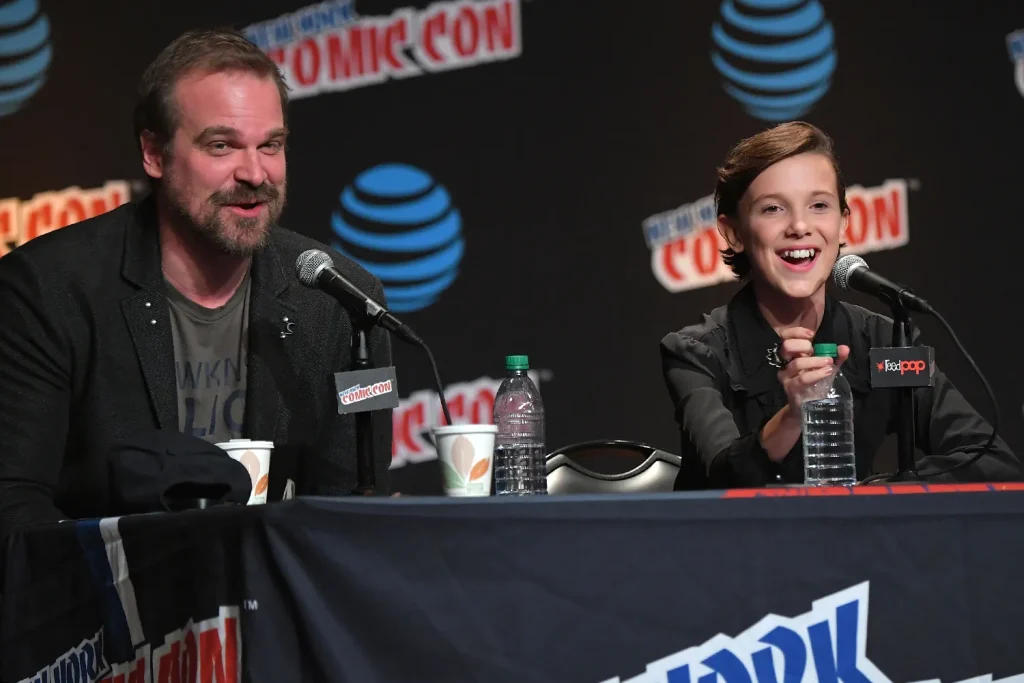
In a recent interview, Brown spoke with the composure of someone determined to reclaim her narrative after weeks of swirling headlines. She didn’t rush her words; she didn’t skirt around the topic. Instead, she approached it with the same emotional honesty that has defined much of her public life since stepping into global stardom at age 12. Fans who expected tension or resentment were met instead with a grounded, thoughtful explanation underscoring the complexity of working relationships, especially on a project as intense and long-running as Stranger Things.
Brown acknowledged that the final season — now streaming its first four episodes on Netflix — carried pressures unlike any before. After nearly a decade of production, with cast members growing up in front of the world and the show becoming one of Netflix’s most celebrated franchises, the emotional stakes behind the scenes ran high. “We’re all human,” she said in the interview. “We’ve all grown, changed, and learned a lot these past eight years.”
When asked directly about her relationship with Harbour, Brown didn’t hesitate. She explained that despite the reports of a complaint filed internally, she and Harbour remain on good terms. She did not deny that difficult moments occurred — acknowledging that sets can be high-stress and that creative disagreements are not uncommon — but she emphasized that their communication has remained open and respectful. “David and I have always been honest with each other,” she said. “That hasn’t changed.”
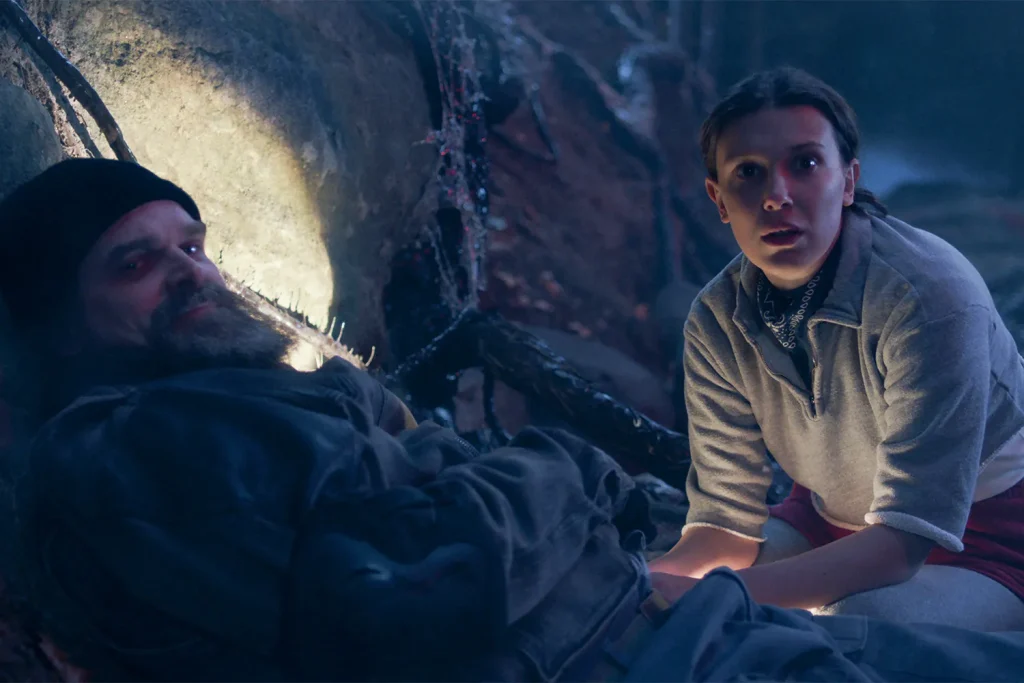
Sources close to the production told PEOPLE that the alleged incident stemmed from a disagreement during a long shooting day, where tensions were heightened by the emotional intensity of the final episodes. Those present described it not as bullying, but as a misunderstanding between two actors deeply invested in their characters’ final arcs. Brown reportedly expressed discomfort during a scene, and standard protocols required that she notify production. From there, the situation escalated through official channels, as guidelines mandate, which is likely how the story grew larger than its reality.
Brown, in her recent update, chose not to relive the details. Instead, she focused on the bigger picture: her genuine respect for Harbour, their shared history, and the strength that comes from surviving years of fame, pressure, and scrutiny together. She acknowledged that their relationship has evolved, just as the characters they portray have evolved, but insisted that the foundation is still intact. “We’ve been through so much,” she said softly. “He’ll always be someone I care about. That doesn’t change because of one challenging moment.”
Harbour has similarly refrained from escalating the situation publicly. In earlier interviews, he called Brown “family,” emphasizing how proud he is of the woman she has become. His affection for her — at premieres, in behind-the-scenes footage, and across years of press events — has never felt performative. Those who have worked with the pair say their rapport is as genuine as it appears, even when they clash in the heat of production.
The controversy arrived at a vulnerable moment for Brown, who has spent the past year balancing the demands of finishing Stranger Things with building her career as a young adult. She launched new projects, announced personal milestones, and continued expanding her entrepreneurial pursuits. Yet, despite her accomplishments, stories questioning her professionalism or character continue to gain outsized traction — a pattern that reflects the challenges young women in Hollywood often face as they assert independence in an industry long shaped by older, more powerful voices.
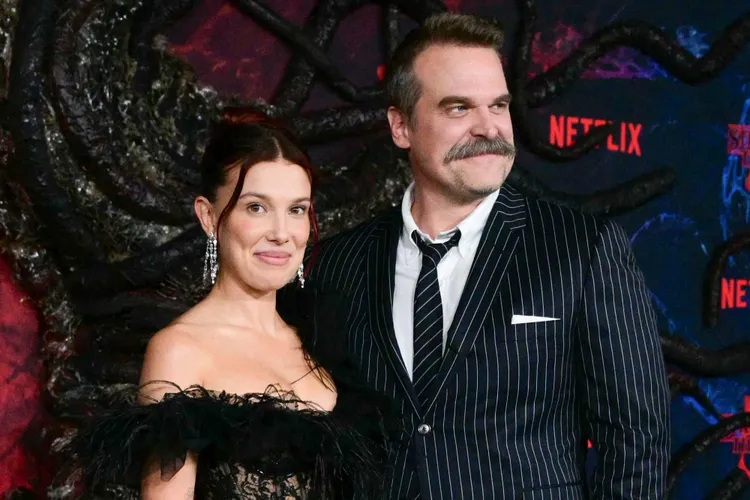
Addressing the rumors head-on seemed to be Brown’s way of reclaiming her agency. Rather than let tabloids and social media distort the story, she presented her truth calmly and decisively. She didn’t paint herself as a victim or cast Harbour as a villain. She portrayed the situation as what it was: a moment of conflict in a long and complex working relationship, resolved like professionals and remembered with maturity rather than resentment.
Brown also emphasized how deeply she values the Stranger Things cast. Over the years, the group has navigated fame, adolescence, and creative pressure together. They’ve celebrated successes, supported one another through personal challenges, and endured the weight of global attention. For Brown, Harbour is woven into that fabric, not someone she would casually cast aside. “Some friendships don’t look the same as they did when they started,” she said, “but it doesn’t make them any less real.”
Her words seem to have reassured many longtime fans, who expressed relief that the pair’s bond remains intact. For viewers who have emotionally connected with Hopper and Eleven since the show’s early days, the idea of tension between their real-life counterparts felt almost too heavy to bear. Their relationship — fatherly, protective, tender, and fiercely loyal — has become one of the narrative pillars of the entire series. Brown’s update reminded viewers that art and life, while intertwined, are not mirrors. On-screen tension does not always reflect off-screen dynamic, and off-screen conflict does not erase years of mutual respect.
The first four episodes of the final season offer glimpses of that familiar dynamic between Hopper and Eleven, showcasing the emotional depth both actors bring to their roles. Their performances feel sharpened by years of connection — every glance and silence carrying the weight of eight seasons of shared storytelling. It is a testament to both actors that the heart of the show still beats strongest when Hopper and Eleven share the frame.
As Brown continues to address her evolving role in Hollywood, she has made it clear that she will not shy away from complexity. Growing up in the public eye means learning when to speak, when to stay silent, and how to navigate the storm when speculation becomes louder than truth. Her willingness to address the Harbour situation directly shows a young woman stepping into adulthood with honesty and strength.
The controversy also speaks to a broader shift in how audiences engage with celebrity narratives. Fans are more invested than ever in behind-the-scenes stories, often blurring the line between characters and the actors who play them. But Brown’s message was a reminder that even beloved stars are human beings doing their jobs — navigating emotions, stress, and interpersonal dynamics like anyone else. And like anyone else, they deserve grace.
Her update seems poised to calm the speculation and restore balance to the conversation. In the end, Brown and Harbour’s relationship appears strong enough to withstand rumors, disagreements, and the pressure of finishing one of the most culturally significant series of the decade. Their bond, forged through years of collaboration, remains intact — perhaps not identical to what it once was, but real and resilient all the same.
As Stranger Things prepares to air its concluding episodes, fans will watch Hopper and Eleven’s final chapter with both nostalgia and bittersweet anticipation. Behind those performances, two actors who weathered a decade of public life together remain connected not by rumor, but by history. And in the words of Millie Bobby Brown, that connection — complicated, evolving, and deeply human — is still very much alive.
